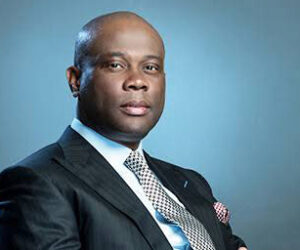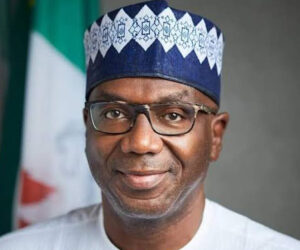2
“Internally, when a country is recklessly being ruled by impunitive and lawless leaderships, every citizen becomes a symbolic pawn without any iota of respect and dignity; and externally, such a country’s global identity becomes a disgrace for the citizens” — DSM
On the 11th of this current month, specifically on Tuesday of this week, the various media outlets were extensively covering a particular incident, and the core of the issue revolved around a significant disagreement between the Federal Capital Territory (FCT) Minister, Nyesom Wike, and a young, energetic Navy officer, Lieutenant A. M. Yerima. The central point of contention was a specific parcel of land, a matter that, under normal circumstances and within a well-ordered society, would not typically involve a high-ranking minister acting as a direct supervisor or field worker at a construction site.
It is a common observation in Nigeria that once an individual attains a position of considerable influence, they frequently transform into a potent symbol of power, often leading to the intimidation of all others around them. This phenomenon often blurs the lines between administrative oversight and direct operational involvement, particularly in matters perceived to be within their purview.
True leadership is not merely sustained through the exercise of restraint; rather, it is fundamentally characterised by the consistent demonstration of good character, which is intrinsically linked to humility and a profound respect for both human rights and individual dignity. These qualities form the bedrock of effective and ethical governance, fostering an environment of trust and mutual respect between leaders and the populace they serve. Without these foundational elements, leadership can easily devolve into authoritarianism, undermining the very principles it purports to uphold.
The minister, in his public display, was not only perceived as reckless in his verbal outburst but also, regrettably, exhibited some of the most undesirable leadership traits in what was widely regarded as a shambolic public spectacle. There is no inherent necessity to validate one’s capabilities or achievements through self-praise, especially when one consciously chooses to engage in grandstanding or playing to the gallery solely for the purpose of personal recognition. Such actions often detract from genuine accomplishments and can be interpreted as a sign of insecurity rather than true strength or competence.
When an elderly individual decides to engage in playful interaction with a child without possessing the wisdom to discern when and where to establish appropriate boundaries, there is a significant likelihood that the child, in their innocent exuberance may treat the elder as an equal playmate.
In this particular instance, the Minister’s actions were widely seen as having gone significantly overboard, and regrettably, that specific day has now become a deeply regrettable and memorable nightmare for him, destined to be recalled by future generations as a significant historical reference point, illustrating the potential pitfalls of unchecked authority and public conduct.
A societal system that is fundamentally constructed upon principles of impunity, characterised by widespread rascality, and permeated by a general disregard for established laws is inherently predisposed to produce leaders who operate without a discernible conscience, who lack transparency in their dealings, who evade accountability for their actions, and who consistently fail to uphold the tenets of justice. Unfortunately, this systematically flawed societal structure is, to a significant extent, representative of the current state of Nigeria.
In the face of significant provocation, it is absolutely imperative that a true leader demonstrates unwavering restraint, maintains impeccable decorum, and consistently adheres to the highest moral principles and ethical standards, both in their personal character and in their professional conduct. These attributes are crucial for maintaining public trust and ensuring the stability and integrity of governance.
Regrettably, there is a noticeable scarcity of leaders who exhibit genuine compassion and understanding when confronted with resistance or challenging realities. It is profoundly disheartening to observe that what many Nigerians are currently showcasing and, in some instances, even praising, is a collection of individuals who can be described as a horde of hooligans. These individuals are often clad in expensive and ostentatious garments, yet they demonstrate very little regard or consideration for the ordinary citizens they are supposed to serve. This represents a morally declined set of leaders, whose primary and often sole impact on the populace is to flaunt their advanced ages, extensive experiences, and academic qualifications as if these attributes alone are the panacea for establishing a robust and effective system of good governance. This superficial reliance on credentials, rather than on genuine character and public service, highlights a significant disconnect between the leadership and the needs of the people.
After reviewing various versions of the altercation’s video clip and numerous commentaries, I observed that the significant number of security personnel accompanying the FCT Minister was largely overlooked. This occurs in a nation where terrorists and bandits are actively engaged in conflict with Nigerians, necessitating the deployment of security personnel to protect citizens. Nevertheless, a single civilian, the FCT Minister, appeared to command what seemed to be a battalion of mixed security personnel, subsequently acting as if he were a soldier in a combat zone.
I must express my sincere appreciation for the candor displayed by the young Nigerian Navy officer. He truly exemplified the utmost respect and dignity inherent in a trained soldier, exhibiting both calmness and bravery—two essential attributes of a gallant soldier and a disciplined civilian. This young military officer merits a national award. He maintained remarkable composure, while, regrettably, a federal minister behaved in a manner akin to a tout in a motor park.
Even when provoked, Nyesom Wike disparaged the officer by calling a sovereign officer, decorated by the President, a fool. With dignity, the soldier simply responded, “I’m not a fool, sir. I have integrity.” Had Wike been more articulate, he would have understood the profound meaning of “integrity,” particularly when comparing their respective characters.
That single statement effectively concluded the argument.
Wike subsequently lost his temper, embodying the typical “big man” persona within the Nigerian political landscape. At this point, wisdom eluded Wike, and he resorted to a familiar script employed by powerful federal government politicians: “You were in primary school when I graduated.” This exemplifies a common bullying tactic and an emergency narrative used by Nigerian politicians when logic fails them.
As anticipated, Wike’s narrative shifted to focus on age and qualifications. However, the young, gallant officer stood firm, maintained control of his men, and demonstrated true discipline. In that moment, Wike descended to a lower standard while the officer ascended to a higher one—a clear instance where power confronted principle, and disruptive behavior was met with order.
The fundamental lesson here is that one should not need to declare their identity; rather, one’s actions should speak for themselves. While Wike questioned, “Do you know who I am?”, the young, valiant soldier silently demonstrated his true character through his conduct.
Finally, the President must intervene to halt Wike’s land grabbing and revocation agenda within the FCT. There are serious allegations of nepotistic re-allocations of these lands to friends, family members, and political allies—a dangerous trend that brazenly exhibits the characteristics of a power broker. Both morally and legally, it is unequivocally wrong for a public servant to revoke citizens’ land and subsequently allocate it to themselves, their children, political allies, and cronies. This episode, featuring a character who adheres to orders and another who wields an intoxicating power, illustrates that even amidst widespread disorder, an individual possessing a nationalistic discipline can transform a lawless society…And as you muse, don’t forget that I come in PEACE.
Dr. Sunny Oby Maduka (DSM), is an Author, Resource Personality, Management Consultant/ Trainer, Chartered/Certified – A u d i t o r / A c c o u n t a n t , Financial Compliance Expert, Economic/Political Analyst Strategist, Marine Expert and Motivationist)








